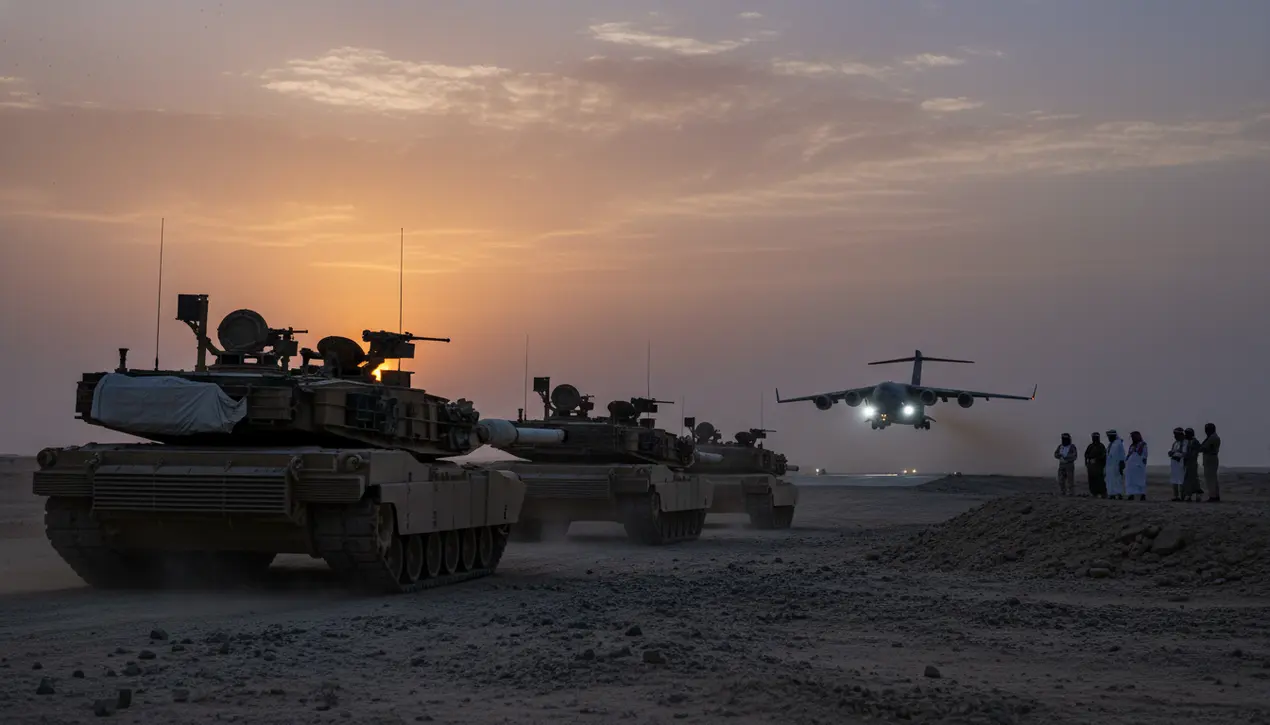
Politicsconflict & defenseArms Deals
Saudi Arabia to buy nearly 300 US tanks.
RO
Robert Hayes
2 hours ago7 min read
In a move that solidifies a decades-long strategic partnership, Saudi Arabia has committed to the monumental acquisition of nearly 300 M1A2 Abrams main battle tanks from the United States, a decision announced by the Trump administration following high-level consultations with Crown Prince Mohammed bin Salman. This transaction, far more than a simple arms sale, represents a profound geopolitical statement, echoing historical precedents where great powers have fortified their allies with the tools of conventional warfare, even as the very nature of combat evolves.The Abrams, a behemoth of American military engineering produced by General Dynamics Land Systems, has been a cornerstone of U. S.armored doctrine since the Cold War, yet its role has been increasingly questioned in an era dominated by drone warfare, cyber tactics, and asymmetric conflicts, as witnessed in recent theaters. By making such a massive, long-term commitment, Riyadh appears to be making a calculated bet on the enduring primacy of heavy armor in regional deterrence, particularly in countering threats from state and non-state actors across the Middle East.This deal is intricately woven into a broader tapestry of spending and security agreements, underscored by the Crown Prince's pledge to elevate Saudi investments in the United States to a staggering $1 trillion, a clear signal of mutual economic entwinement that recalls the petro-dollar recycling agreements of the late 20th century. From an analytical standpoint, this decision safeguards hundreds of American manufacturing jobs, providing a political win for the administration, while simultaneously enabling Saudi Arabia to build its indigenous defense capabilities, a key pillar of its Vision 2030 initiative aimed at reducing economic dependence on oil.However, the strategic calculus is complex; flooding the region with advanced weaponry carries inherent risks, potentially altering the balance of power and escalating regional arms races. Expert commentary would likely highlight the dichotomy between the tank's symbolic power as an instrument of national sovereignty and its vulnerabilities on the modern battlefield, where inexpensive drones can destroy multi-million dollar platforms.The consequences of this pact will reverberate beyond the immediate transfer of hardware, influencing diplomatic alignments, future military aid packages, and the strategic posture of neighboring nations, firmly anchoring the U. S. -Saudi alliance for the foreseeable future amidst a landscape of shifting global power dynamics.
#Saudi Arabia
#US
#Abrams tanks
#arms deal
#defense pact
#featured
#Mohammed bin Salman
#Trump administration
Stay Informed. Act Smarter.
Get weekly highlights, major headlines, and expert insights — then put your knowledge to work in our live prediction markets.
Comments
Loading comments...
© 2025 Outpoll Service LTD. All rights reserved.